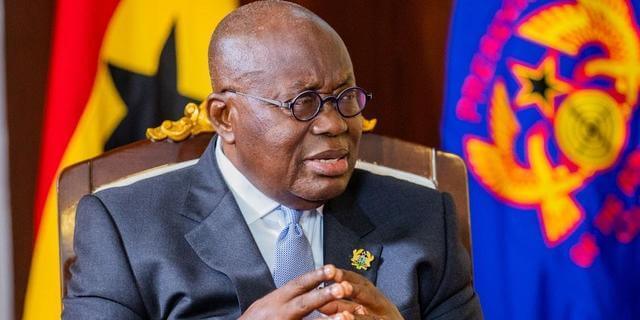Cloud of uncertainties over Ghana’s external debt restructuring

Francis Kyei, Senior Market Analyst
It has taken Ghana about two months to convince its domestic creditors to accept new debt repayment terms as part of the conditions to secure a loan from the International Monetary Fund (IMF).
The original terms of the domestic debt restructuring programme have been watered down to get the participation of bondholders. That notwithstanding, individual bondholders and pension funds refused to participate.
With the domestic debt restructuring out of the way, Ghana’s burden now is how to convince its external creditors made up of bilateral c and international bondholders from different parts of the world, and with different interests, to accept new terms.
Engagement with bilateral creditors
Ghana has officially asked its bilateral creditors for debt treatment under the G-20 common framework. Ghana owes the Paris Club members USS$1.9 billion and China, a non-Paris club member, and the country’s biggest bilateral creditor, US$1.7 billion.
Considering the difficulties Zambia is currently facing with its bilateral debt restructuring, Ghana is seeking to present softer terms to its bilateral creditors to get their support.
The country has engaged its major bilateral creditors, China and India, to accept the new debt repayment terms to facilitate the discussion with the Paris Club.
Ghana’s President Nana Akufo-Addo has made an appeal to Germany to use its diplomatic ties with China to encourage the Asian country to support Ghana’s debt restructuring efforts.
However, it is unclear how the external debt restructuring will turn out. There is a powerplay between the West and China over Zambia’s debt restructuring and if this power struggle extends to Ghana’s debt restructuring, it can prolong the discussion and delay Ghana’s IMF programme.

Implication on Eurobond holders
Ghana’s Finance Minister, Ken Ofori-Atta, has sent a signal to the country’s Eurobond holders that they may have to take the heaviest burden of the country’s debt restructuring efforts.
The watered-down domestic debt exchange programme and plans to present softer terms to bilateral creditors mean Eurobond holders may be requested to take up the burden.
Multi-national investment firms such as BlackRock, Amundi, ABRDN, among others, with assets worth tens of trillions of dollars, have formed a bondholder steering committee to represent Ghana’s Eurobond holders.
These creditors also hold many sovereign bonds in emerging and frontier markets. The outcome of Ghana’s Eurobond restructuring will obviously set a precedent for other debtors in similar situations, and this can make things quite difficult for Ghana.
Sources say the Ghanaian government is proposing a 30% cut on the face value of its Eurobonds, a three-year zero-coupon payment, and 30% cut on coupon payments after the three-year freeze on coupons.
Ghana needs to convince these powerful creditors to accept the cuts to secure the IMF. Whether they accept such a proposal remains to be seen. However, the country’s IMF board-level approval in the first quarter of 2023 is very unlikely, considering the uncertainties over the country’s external debt restructuring.
Disclaimer: This article has been prepared by GFX Prime, an African investment firm with its registered office on the 2nd Floor, PWC Towers, Cantonments City, Accra Ghana. This article has been issued for information purposes only. GFX Prime does not recommend or propose that any security referred to in this article is appropriate or suitable for your investment objectives or financial needs
subscribe to receive current ssa market and investment analysis directly from our trading desk
Ghana Navigates Tightrope in Eurobond Debt Restructuring
Francis Kyei, Senior Market Analyst, Ghana, constrained by previous creditor agreements, faces critical negotiations with Eurobond holders as it seeks major cuts. The country aims for substantial concessions from bondholders, amidst concerns of a potential standoff similar to Zambia’s recent experience. Ghana is embroiled in a challenging negotiation with its Eurobond holders, with a limited range of options at its disposal, a confidential…
IMF Approves Crucial $684.7 Million Loan to Kenya Amidst Fiscal
Francis Kyei, Senior Market Analyst, IMF disburses $684.7 million to Kenya, part of a larger $941 million package, tosupport fiscal stability and impending Eurobond repayment. Financial aid to ease liquidity challenges and bolster foreign-exchange reserves amidrising external debt maturities and weakening currency The International Monetary Fund (IMF) has approved a significant financial boost for Kenya, with an immediate disbursement of $684 million, as…
Ghana Achieves Four-Year Interest Freeze in Bilateral Debt Agreement with
Francis Kyei, Senior Market Analyst Official Creditor Committee agrees to a 4-year debt suspension, 2-3% interest from the fifth year of Ghana’s loan repayment, with room for further negotiations. IMF Executive Board to review Ghana’s programme this Friday, after bilateral debt restructuring agreement. The agreement is set to provide Ghana with immediate financing of approximately US$1.15 billion. The Executive Board of the International Monetary…
Ghana Receives Debt-Relief Terms; IMF Optimistic About $600M Disbursement
Francis Kyei, Senior Market Analyst Ghana has secured debt-relief terms from its bilateral creditors, resulting in a positive outlook from the IMF for a second tranche of $600 million. The IMF is optimistic for Ghana’s negotiations with its creditors, yet there is rising criticism surrounding the IMF agreement. The success of the restructuring process is vital for achieving a debt-to-GDP ratio of 55%…
Ecobank Transnational Inc (Investment Analysis)
Francis Kyei, Senior Market Analyst Introduction This report provides an overview of Ecobank Transnational Incorporated’s (ETI) financial performance for the first nine months of 2023, highlighting key strengths and areas of concern. It provides insights into the bank’s ability to generate revenue, maintain financial stability, and navigate challenges. The analysis covers key financial metrics, comparative performance with peers (UBA, Fidelity, and FBNH), credit…
Ghana Explores Green Bonds for Climate-Resilient Projects
The Ghanaian government, inspired by Zambia’s renewable energy funding, is considering green bonds to finance climate-resilient projects. Ghana is actively developing projects to produce and export carbon credits, with a Carbon Market office established to manage sales. Aiming for $50 million in carbon revenue by 2024, Ghana plans to reduce over 64 million tons of CO2 equivalent by 2030, supported by global…